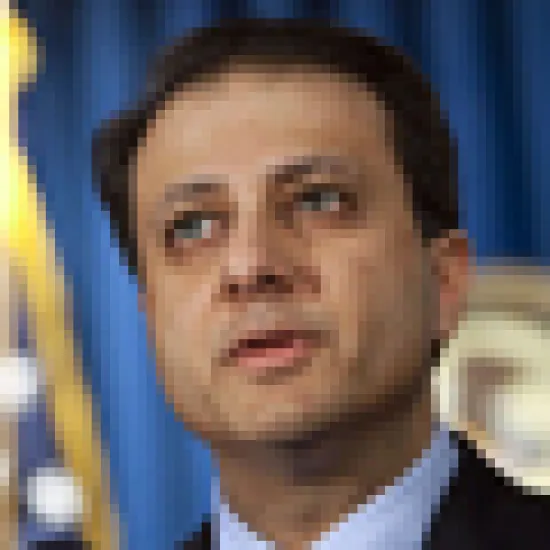The Justice Department made four more arrests today in its widening investigation of insider trading while a fifth pled guilty. This completes Phase One of the government’s probe with Phase Two coming sometime in January, according to CNBC.
On Thursday, Preet Bharara, the United States Attorney for the Southern District of New York announced the details behind the arrests in the insider trading scandal.
They include another executive at an expert network firm -- James Fleishman, an executive for Primary Global. He was charged with wire fraud and conspiracy for conspiring to provide confidential information, including material, nonpublic information to the firm’s clients, including hedge funds.
Bharara also announced the arrest of Mark Anthony Longoria, who worked at Advanced Micro Devices, as a Supply Chain Manager; Walter Shimoon, a SeniorDirector of Business Development at Flextronics International, and Manosha Karunatilaka, who was employed by Taiwan Semiconductor Manufacturing as an Account Manager. All three were charged with wire fraud and conspiracy to commit securities fraud and wire fraud charges in connection with their employment as consultants for Primary Global.
In addition, Bharara announced that Daniel Devore, a former Global Supply Manager for Dell who worked as a consultant for Primary Global, pled guilty on December 10 to an Information charging him with wire fraud and conspiracy to commit wire fraud and securities fraud.
So, this means the government has not yet caught the big fish most observers are anxiously anticipating. The big catch will probably come after the holidays. For those who are anticipating an arrest, it won’t exactly be a Merry Christmas or a Happy New Year.
Thursday’s arrests shined a brighter light on the until-recently opaque world of expert networks. These are the collections of doctors and other professionals, as well as ex-corporate officials, typically brought together by boutique firms.
In November, the government’s first arrests were Don Ching Trang Chu, an executive at Primary Global Research, an “expert-networking” firm, and French doctor Yves Benhamou, the expert who was charged with engaging in insider trading, enabling hedge fund FrontPoint Partners to avoid about $30 million in losses after it learned bad news about a clinical trial for the drug Albumin Interferon Alfa 2-a.
"Today’s charges allege that a corrupt network of insiders at some of the world’s leading technology companies served as so-called ‘consultants' who sold out their employers by stealing and then peddling their valuable inside information,” said Bharara in a statement. He added that the allegations and guilty plea describe criminal conduct that “went well beyond any legitimate information-sharing or good faith business practice.”
He also signaled that many more arrests are coming, asserting: “Over the next many months and beyond, we will continue to enforce the law, police the market, and protect honest businesses and their shareholders by working methodically with the FBI and SEC to root out corporate corruption and insider trading."
According to the announcement, Primary Global paid more than $400,000 to the four individuals to participate in phone calls with firm clients, including hedge funds.
The government noted that Primary Global’s experts have “real-world experience” in industries such as healthcare, technology, media, telecommunications, retail, manufacturing, energy and aerospace.
The consultants speak one-on-one with clients “to provide up-to-the-minute intelligence on trends, issues, regulations and dynamics affecting a particular company, product or industry," the government explained. It noted the consultants can earn hundreds of dollars per hour or per call from the firm for their consultations with clients. The clients, which include hedge funds, often paid “tens of thousands of dollars” per year for access to the consultant network and services.
Two big question are: What effect the probe will have on expert networks and their clients? Are clients running away from these firms?
Not yet, says Michael Mayhew, chairman of Integrity Research, a New York–based firm that helps asset managers identify and manage their research. He says that Primary Global, of course, will be heavily impacted since it has publicly been caught up in the insider trading scandal since November.
However, Myhew does not believe other companies have been adversely affected yet. He should know. A year ago his firm warned hedge funds, expert networks and other players about the importance of compliance and the risks of not having strict controls over their use of these experts. The firm asserted in a 143-page report based on an extensive survey of industry participants that most analysts and portfolio managers are not overly concerned or informed about compliance in the otherwise unregulated business. In fact, the report said 18 of 38 firms did not even discuss with his firm their compliance policies.
Primary Global, however, did discuss compliance with him. And Mayhew says the firm’s policies as written were actually very good. But, even that is not enough to prevent individuals from breaking the law. “You can have great policies and procedures, but if you don’t execute them, they are not worth the paper they are printed on,” he stresses.
Mayhew is well aware that if additional companies are identified in the insider trading investigation, this could become the death knell for the expert network business. “I would fear that anyone we use is a risk,” he concedes. “It would be very difficult for the industry.
In fact, its mere existence is on the line. Brace for Phase Two.







